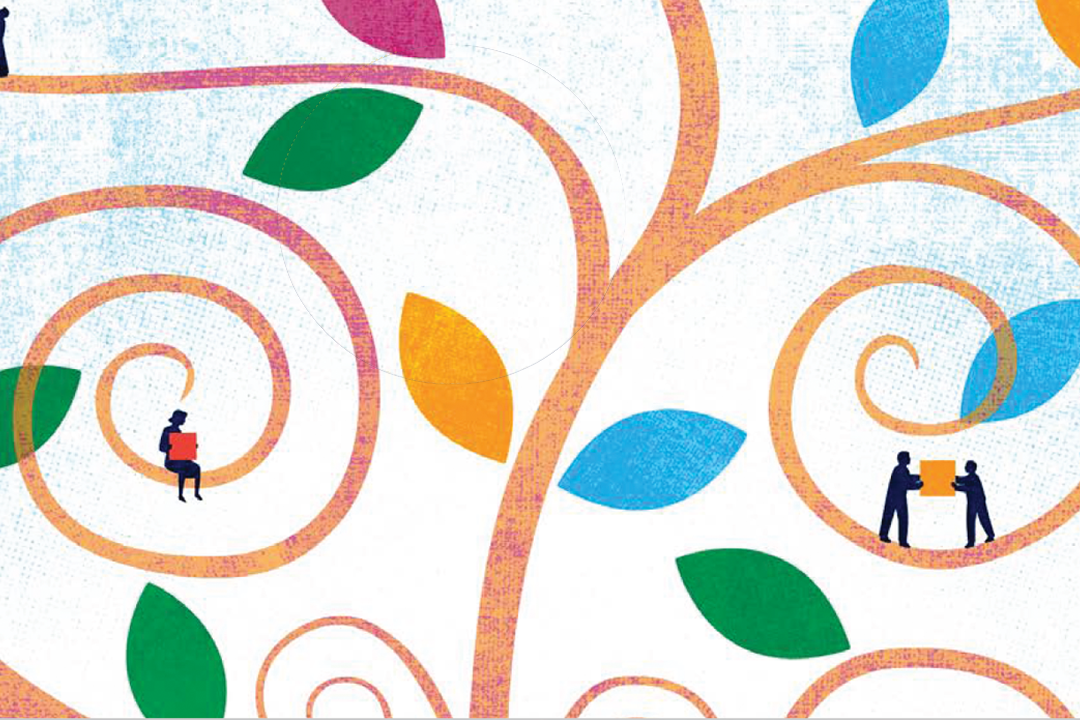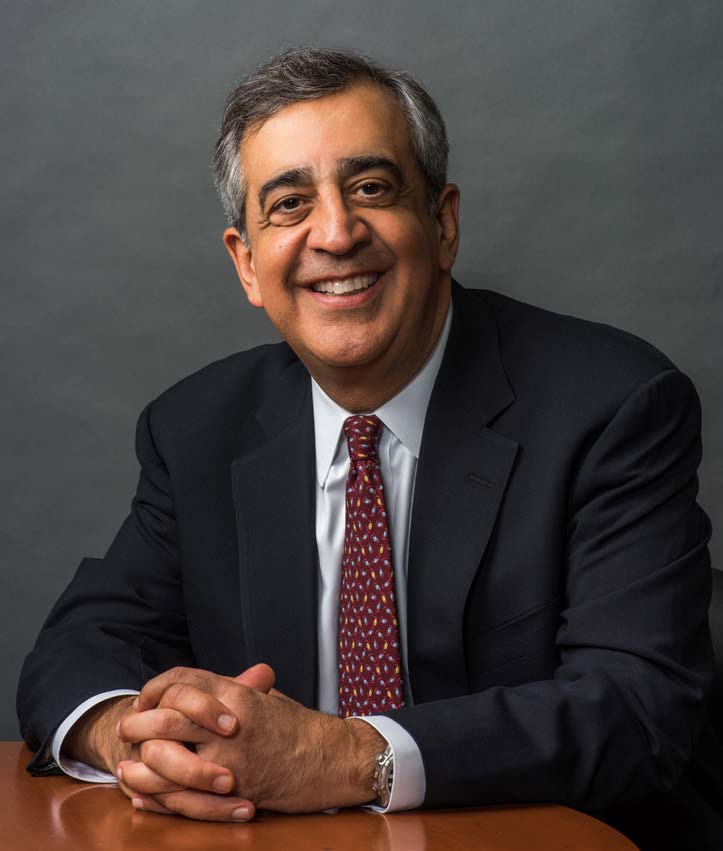By Sarah Kellogg
GW Law's rich clinical offerings and breadth of clinic advisors and faculty ensures that both students and the greater community benefit from an exceptional array of talent and energy. By doubling down on experiential programming with the addition of two new clinics and the creation of an advisory council, the law school is determined to maintain its leadership edge in experiential learning.
Founded in 1971, the esteemed Jacob Burns Community Legal Clinics vary substantially in purpose, duration, requirements, and duties, and the addition of two new Access to Justice Clinics—the Education Access Advocacy Division and the Prisoner Civil Rights Division—further advances the law school’s promise to establish experiential learning as a cornerstone of a legal education.
“Through the interest and determination of our students and the expertise of our faculty, we are able to provide experiential learning opportunities to each and every one of our students,” said Dayna Bowen Matthew, Dean and Harold H. Greene Professor of Law. “Across our clinics, students are given the opportunity to grapple with complicated legal issues in a wide selection of cases, advocate for clients in court hearings, administrative hearings, and trials, and gain a deeper understanding of the practice of law.”
GW Law’s clinical program is now one of the largest in the nation, with a total of 18 clinics in fall 2023. To grow from that foundation, the dean has appointed an inaugural Clinical Law Advisory Council (CLAC) to support the clinical program in its efforts to evolve and flourish. The CLAC’s mission is to provide the best possible experiential education for students, increase financial support for clinical programs, and enhance student career development initiatives.
“The Council is committed to providing the skills law students need to gain to be prepared for what practices are requiring,” said Basel Musharbash, JD ’18, who serves as co-chair of the group. “Our commitment is to make the clinics an even better opportunity to interact with the practicing bar, finding mentors and building connections that can lead to internships and jobs.”
Musharbash and his co-chair Deborah (Goldenberg) Orlove, JD ’91, are excited about the opportunity to offer real value to GW Law through the CLAC’s vision, philanthropic commitments, and sweat equity. The co-chairs hope that the panel will be able to live up to the challenge ahead.
“We need to make sure that the value of the clinic to the law school and to the broader university is a draw for students and is a key part of the educational experience that students expect, deserve, and demand when they come to GW Law,” said Musharbash. “We need to make sure that value is communicated so there is support for the continuing growth of the clinics in the coming years.”
Finding Due Process in a Suspension Hearing
The New Access to Justice Clinic—Education Access Advocacy Division focuses on representing D.C. Public Schools (DCPS) students in suspension hearings before the D.C. Office of Administrative Hearings (OAH). The clinic expands the clinical program’s practice area into education advocacy while also meeting community needs and GW Law students’ interests.
“The clinic is an exceptional incubator for students to learn advocacy skills,” said Assistant Dean for Pro Bono and Advocacy David M. Johnson, noting any hearings and decisions must come within a few days of the suspension announcement. “These cases are not complicated in the whole scheme of things, and yet the students will be appearing before a judge with an opponent on the other side.”
“It’s not a moot court; they will be facing a real opponent, maybe the dean of students, a school principal, or an attorney for DCPS. And it’s all going to get resolved in an insane four days,” added Johnson.
The clinic gives students a chance to dig deep into suspension cases and involves significant trial preparation and fact investigation. Students will interview and counsel clients, and prepare for all facets of a hearing: opening arguments, direct, cross, objections, evidence, and closing arguments.
“The court is excited about this because there will be someone to represent both sides,” said Johnson. “They seem to have a real appetite for someone to get in there and look through the record and tell the court whether due process did or did not happen in handling the suspension as required.”
These new clinics are two credits apiece, reflecting a 90-hour commitment from law students over the course of the semester. They set up new avenues for students who want an experiential learning opportunity but may not be able to commit to the time required for a six-credit clinic.
“We wanted students to have this option because the interest is there,” said Johnson, “but we recognize that taking a six-credit clinic with letter grades can be daunting. That’s why we launched a more limited time requirement clinic that is pass-fail. Ultimately, it lets us offer more clinics for more students.”
Advocating for Prisoners and Their Families
Professor Stephen A. Saltzburg, who will lead a clinic for the first time in his impressive GW Law tenure, will direct the Access to Justice Clinic—Prisoner Civil Rights Division. The clinic focuses on addressing barriers to justice for prisoners seeking civil remedies for state maltreatment. This fall, the four students in the clinic are working on a case involving an individual who died in custody in Maryland as other inmates and prison guards stood by and failed to intervene.
“Our students got off to a pretty fast start,” said Saltzburg, the Wallace and Beverley Woodbury University Professor of Law and co-director of the Litigation and Dispute Resolution Program. “Our case involves a young, 27-year-old African American male who was murdered in pretrial detention. The action is being brought by his father and stepmom, who is the representative for the son’s estate.”
This first semester, the student team will be working on filing the civil rights and wrongful death complaint after researching the causes of action the group will rely on. The students will also conduct interviews with various individuals associated with the case, from the family members to the public defender. In the spring semester, they expect to get into a courtroom.
Saltzburg believes clinics like his will also initiate an important aspect of GW Law’s strategic plan by fostering greater collaboration between the clinical and traditional faculties. Saltzburg chaired the GW Law Strategic Planning Commission, so this has been a passion for him.
“We are a school that had too many silos,” said Saltzburg. “Doctrinal and clinical faculty were set apart. We thought it was really important to make the point that every voice matters here in the law school, and that faculty could bridge that divide. I’m the first doctrinal faculty member to cross over, and we’ve already had some clinical professors teaching doctrinal courses.”
That pledge from faculty is why Musharbash feels especially enthused about the status of the clinical program and its future. Not only are students interested in gaining experiential learning opportunities, but GW Law remains determined to provide the kind of offerings that can change careers and lives.
“My legal clinic was the capstone experience of my legal education,” recalled Musharbash. “It gave me a vision for what kind of practice I wanted to have and what kind of career I could design for myself. I want GW Law students to have that experience too.”





